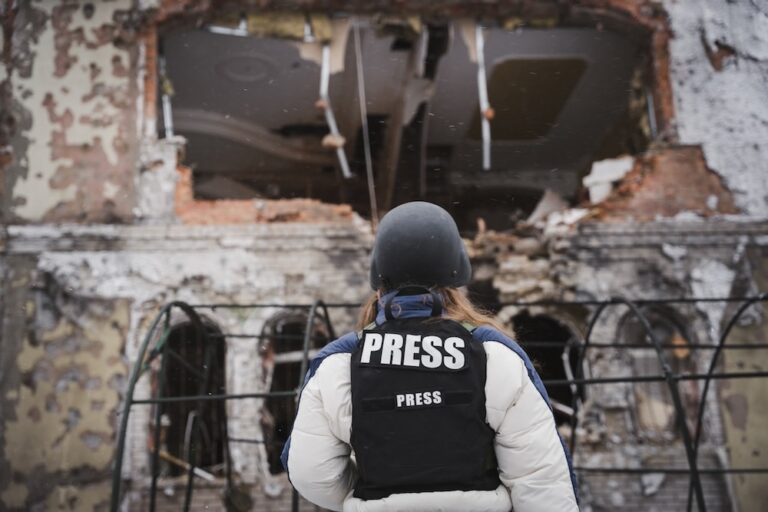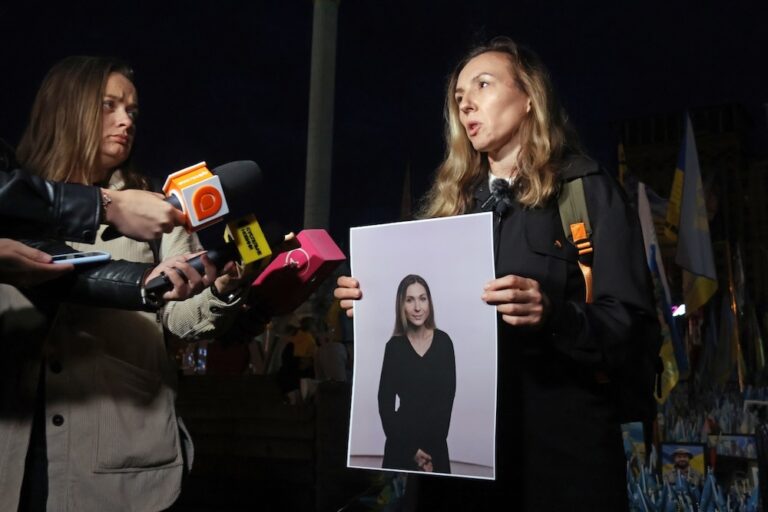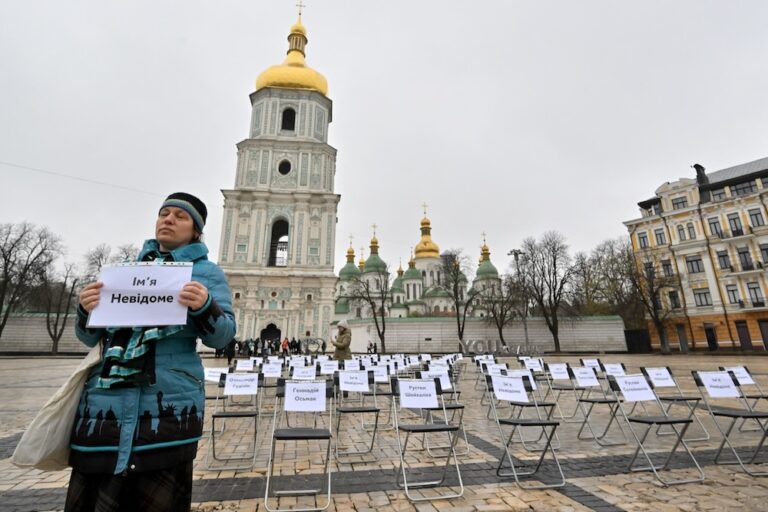(RSF/IFEX) – RSF, along with several journalists’ unions and press freedom organisations, has repeated a call to Ukrainian Prosecutor-General Vassiliev Gennady to grant civil society groups a supervisory role in a new expert examination of the “Melnichenko tapes”. The tapes, which were apparently recorded in the office of President Leonid Kutchma by former police officer […]
(RSF/IFEX) – RSF, along with several journalists’ unions and press freedom organisations, has repeated a call to Ukrainian Prosecutor-General Vassiliev Gennady to grant civil society groups a supervisory role in a new expert examination of the “Melnichenko tapes”.
The tapes, which were apparently recorded in the office of President Leonid Kutchma by former police officer Mykola Melnichenko, reportedly implicate the country’s highest authorities in the murder of Georgiy Gongadze, editor-in-chief of the online newspaper http://pravda.com, whose decapitated body was found on 2 November 2000.
Gennady refused an earlier request on 6 February 2004, on the grounds that the Ukrainian criminal code and Constitution did not allow for this type of monitoring. RSF, the Mass Media Institute, ARTICLE 19, the National Union of Journalists of United Kingdom and Ireland and the International Federation of Journalists have therefore repeated their call.
“Our sole objective is to ensure that this expert examination, the outcome of which is crucial, is carried out with utmost transparency with regard to the origin of the recordings, the choice of country where the examination will be carried out, and the choice of the expert and equipment. Without this, the conclusions of the new examination will not be credible in the eyes of international public opinion,” the organisations wrote to Gennady on 24 February.
“In view of the importance of this case for press freedom and the reputation of Ukraine, we are repeating our request. Legal arguments did not prevent the examinations of Gongadze’s body in Switzerland and the United States. The ‘civil participation’ that we seek today could take whatever form you find most suitable and that would be compatible with Ukrainian law,” the organisations added.


